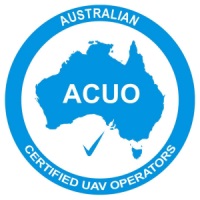
The Australian Certified UAV Operators Inc. (ACUO) have issued a petition to their members against the notice of proposed rule-making by Australia’s Civil Aviation Safety Authority.
This is the summary of that NPRM (my emphasis):
NPRM 1309OS - Remotely Piloted Aircraft SystemsBackgroundThis amendment to CASR Part 101 relates to Remotely Piloted Aircraft (RPA) used for commercial operations, but excludes model aircraft used for recreational purposes. It establishes a revised risk based framework for regulating RPA operations. A key part of this amendment acknowledges the existence of a "low risk" class of RPA operations, which are determined as small RPA with a gross weight of 2 kilograms and below while they are being operated under the standard RPA operating conditions as defined and discussed in this NPRM. For these RPA operations, CASA proposes that the requirements for a Remote Pilot (RP) Certificate or an Unmanned Aircraft System Operator’s Certificate (UOC) will not apply. RPA with a gross weight above 2 kilograms in all operating conditions, and all RPA operating outside of the standard RPA operating conditions, will require an operational approval. This amendment also proposes a number of changes to: update the current terminology used within CASR Part 101 to bring it in line with the latest terminology used by ICAO as found in Annex 2 to the Convention on International Civil Aviation - Rules of the Air. clarify the current requirements for RP training and RP certification remove redundant requirements and to simplify the process for approval.
|
The AUCO concern seems to be amateur RPAS conflicting with aircraft and gives examples of recent Australian incidents. They are particularly worried about people with no experience in aviation or model aircraft going down to Harvey’s and buying a Parrot or similar then popping it up near an airport - a well justified fear. There is no doubt that the emergence of cheap, ready to fly aircraft with capabilities far beyond ‘model aircraft’ of the past is a growing worry.
A quick search on YouTube will show the current capabilities of small UAVs, how about an 80km solar-assisted flight with video downlink all the way? Or an electric model aircraft flying at 16,000 feet?
All very worrying but what is hard to see is how the NPRM would increase the risk of this happening as the AUCO suggests. The incidents referred to by the ACUO are illegal now and will continue to be illegal. The people doing this are either ignorant of or don’t care about the regulations so whatever the regulations contain is unlikely to change their behaviour. The recent CASA brochure, to be distributed to retailers, will help with the ignorant ones but the deliberate rule-breakers won’t be deterred by NPRM 1309OS.
The NPRM won’t legalise flying near aircraft. It doesn’t weaken the standard RPA operating conditions that non-commercial craft must follow.
It lessens the rules for small commercial craft but also removes the ability for those craft to do things that licences commercial craft can do - FPV, controlled airspace, publish NOTAMs etc. An official CASA licenced operator can fly down the middle of 16R at Sydney airport with the right approvals. There’s no way a commercial UAV operating under the new exemption can legally do that.
What it does propose to allow is commercial sub-2KG RPAS. CASA see sub 2KG craft flown within current RPA regulations on a commercial basis as being a low risk policy not requiring the costly burden of regulation.
Instead the AUCO proposes greater regulation, enforcement and penalties however this is an area that would be very difficult to police. You may as well add children’s helium balloons while you’re at it.
It appears that the AUCO has missed the point as the NPRM proposes, amongst other things, to exclude commercial UAVs under 2KG flying from CASA oversight. So commercial sub-2kg UAVs would be under the same rules as non-commercial. Unlikely to reduce incursions by amateur craft.
Chances are that the proposed change would affect the ACUO members financially.. many commercial jobs can easily be done by a craft weighing less than 2 kilograms - think real estate photography, infrastructure inspection and so on.
"This would only apply in the standard operating conditions, which includes operations in visual line of sight, less than 400 feet above ground level, non-populous areas, more than 30 metres from people and outside controlled airspace," said Director of Aviation Safety John McCormick.
I hope that CASA don’t cave in to preserve the turf of the ACUO.